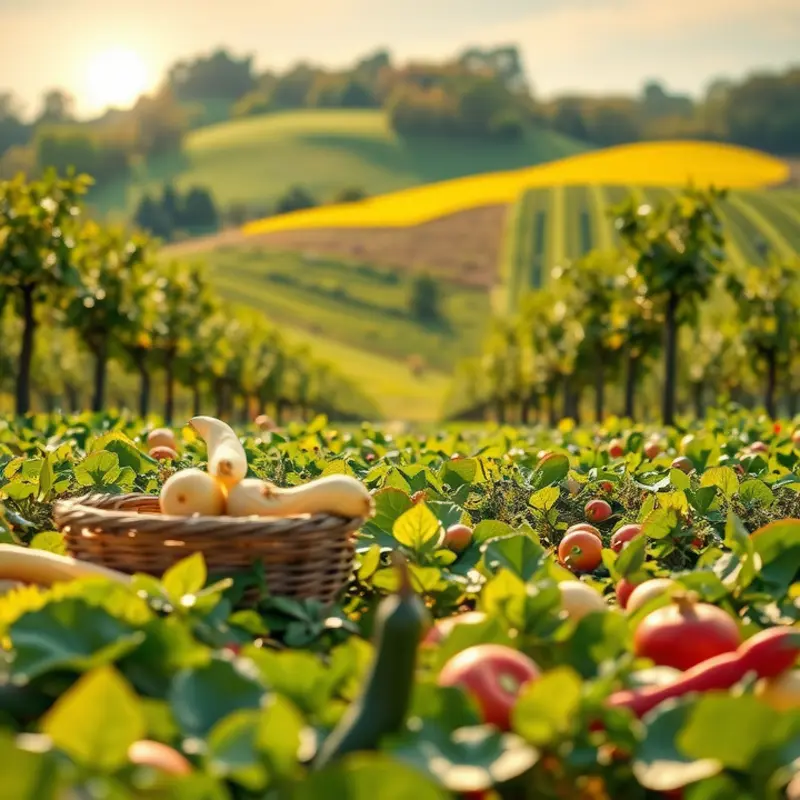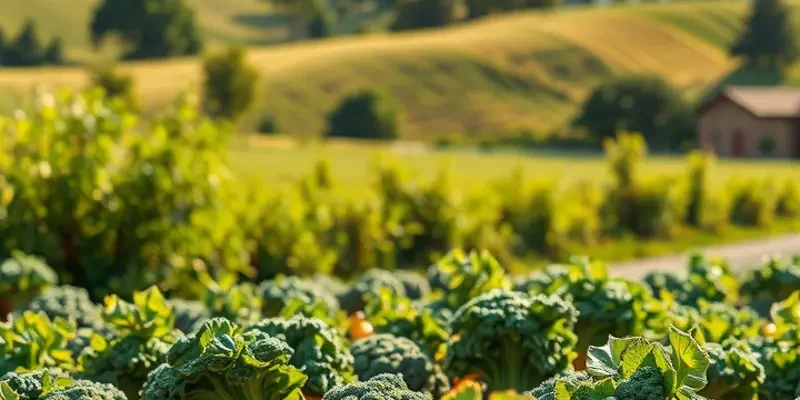Understanding sustainable agriculture is essential for making informed, eco-friendly food choices. This approach promotes a healthier environment while ensuring the efficiency of food systems. By embracing practices that protect our soil, water, and biodiversity, individuals can contribute to a more sustainable future. Through this guide, you will uncover the principles of sustainable agriculture and discover actionable steps to support eco-friendly food production, whether on your plate or in your community.
Foundations of Sustainable Agriculture

Sustainable agriculture is built on principles that balance the environment, society, and economics. By focusing on these core elements, sustainable farming seeks to provide food and fiber while maintaining the health of ecosystems and communities.
Environmental Sustainability
Preserving the environment is a primary goal of sustainable agriculture. This involves practices that enhance soil health, promote biodiversity, and utilize resources efficiently. Healthy soil acts as a foundation for robust plant growth and nutrient cycles. Techniques like crop rotation, cover cropping, and reduced tillage improve soil structure and fertility. These methods increase organic matter, enhance water retention, and reduce erosion.
Additionally, crop diversity is essential for a resilient farming system. It minimizes pest outbreaks and adapts to climate variation. By planting a variety of species, farmers create ecosystems that support beneficial insects and reduce the need for chemical inputs. This not only protects crops but also preserves local wildlife habitats.
Water management is another vital aspect of environmental sustainability. Responsible water use in agriculture ensures that fresh water is utilized efficiently, helping to sustain supplies for future generations. Techniques like drip irrigation and rainwater harvesting maximize water use efficiency, reducing waste and conserving resources.
Social Responsiveness
A sustainable agricultural system also strengthens social structures and relationships. It prioritizes fair wages, safe working conditions, and community well-being. Farmers are encouraged to engage in practices that promote human health and respect, fostering communities that value their food producers.
Educational opportunities are also crucial. Empowering communities with knowledge about sustainable practices leads to better decision-making and increased resilience in food production. Community-supported agriculture (CSA) programs connect consumers with their local food systems, enhancing transparency and trust.
Economic Viability
Sustainable agriculture must also be economically viable. This means employing practices that are profitable for farmers. Innovative techniques can reduce costs by decreasing reliance on expensive chemical inputs and fossil fuels. Organic farming, agroforestry, and permaculture are examples of practices that offer long-term economic benefits.
An economically viable system also relies on new market opportunities. Local markets and direct-to-consumer sales channels allow farmers to receive a higher percentage of the retail price. This model supports local economies and reduces the carbon footprint associated with transporting food over long distances.
To further explore eco-friendly food practices, consider how you store your foods. Proper storage can significantly reduce waste, benefiting both the environment and your wallet. Check out this guide on eco-smart kitchen storage for practical tips.
By integrating these elements—healthy soils, diverse crops, and responsible resource use—we create a robust and adaptive food system. Understanding the fundamentals of sustainable agriculture empowers you to make informed choices that align with your values, ultimately contributing to a healthier planet.
Practical Steps to Support Sustainable Farming

Making sustainable food choices is within everyone’s reach. One of the simplest strategies is to rethink how you shop for groceries. Opt for organic produce whenever possible. Organic farming utilizes environmentally friendly practices, reducing the use of harmful pesticides and fertilizers. This way, you support agricultural practices that maintain soil health and biodiversity.
Understanding food labels is crucial in making informed choices. Look for certifications that guarantee sustainability. Labels like “Certified Organic,” “Fair Trade,” and “Rainforest Alliance Certified” are indicators of products that adhere to sustainable and ethical standards. By choosing products with these labels, you are directly supporting better farming practices and fair labor conditions.
Connecting with local farmers and visiting farmers’ markets can enrich your food choices. Not only do you obtain fresh, seasonal produce, but you also support the local economy. Seasonal food is often more flavorful and requires fewer resources to grow and transport. By interacting with farmers, you gain insight into how your food is grown and can ask questions about their growing methods and their commitment to sustainability.
Reducing food waste is another impactful step. Plan your meals to avoid over-purchasing, and use leftovers creatively. For ideas, check out this low-waste cooking guide. Composting food scraps can further minimize waste while enriching the soil in your garden or community.
Advocacy for sustainable policies can amplify your individual efforts. Support local initiatives focused on sustainable agriculture, or campaign for policy changes that benefit the environment. Participation in community-supported agriculture (CSA) programs is a proactive way to directly back local farmers and reduce the distance your food travels from farm to table.
By making these choices, you contribute to a more sustainable food system, benefit your local economy, and support the environment. Every action counts, and collectively, small steps can lead to significant positive changes in promoting sustainable agriculture.
Final words
By understanding the foundations of sustainable agriculture and taking practical steps towards eco-friendly choices, you can significantly impact the health of our planet. Your daily food decisions influence not only what you consume but also the larger agricultural system supporting it. Supporting sustainable practices fosters biodiversity, soil health, and community resilience. Each choice to opt for organic, local, or seasonal foods plays a part in the broader movement towards sustainability. Embrace this knowledge, and together, you can cultivate a healthier future for yourself and the planet. Let’s root for a sustainable tomorrow!








